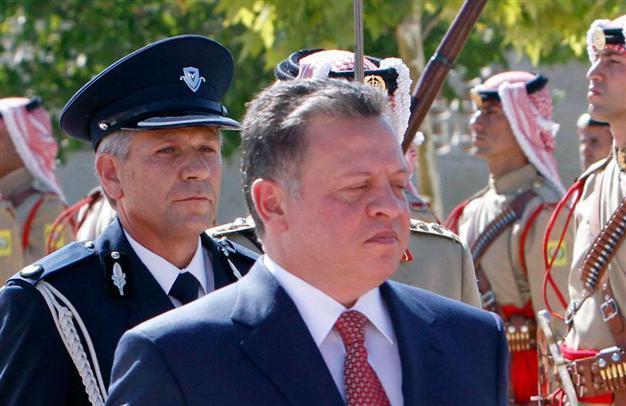King accuses Israel of disrupting Jordan nuclear plans
AMMAN - Agence France-Presse

EPA photo
King Abdullah II on Wednesday accused Israel of disrupting Jordan's nuclear programme which is aimed at meeting its dire energy needs and powering water desalination plants, in an exclusive interview with AFP.
"Strong opposition to Jordan's nuclear energy programme is coming from Israel," the king said.
"When we started going down the road of nuclear energy for peaceful purposes, we approached some highly responsible countries to work with us. And pretty soon we realised that Israel was putting pressure on those countries to disrupt any cooperation with us." Jordan signed a peace treaty with Israel in 1994.
"A Jordanian delegation would approach a potential partner, and one week later an Israeli delegation would be there, asking our interlocutors not to support Jordan's nuclear energy bid," Abdullah said during the interview at his palace.
Jordan, which imports 95 percent of its energy needs, is struggling to find alternatives to unstable Egyptian gas supplies, which normally cover 80 percent of the kingdom's power production. Since 2011, the pipeline supplying gas from Egypt to both Israel and Jordan has been attacked 14 times, with a consequent disruption of supplies.
With desert covering 92 percent of its territory, the kingdom is one of the world's 10 driest countries and wants to use atomic energy to fire desalination plants to overcome its crippling water shortage.
"Nuclear energy will be the cheapest reliable way to desalinate water," the king said.
Energy experts in Jordan have demanded the country drop its ambitious plans to generate atomic power, following the nuclear disaster in Japan last year.
"Jordan will go only for the most secure, latest-generation reactor," the monarch said, answering the critics.
"These are far safer than earlier models, and have multiple features that help them withstand extreme conditions. Japan's Fukushima disaster involved an old-generation plant." A 9.0 magnitude earthquake hit Japan's northeast coast on March 11, 2011, and the Fukushima Daiichi nuclear plant began leaking radiation into the air, sea and soil, contaminating farm produce and making its way into tap water.
The plant was swamped by a ferocious tsunami that left almost 13,500 dead and 15,000 missing. Tens of thousands more were made homeless.
"The fact is that worldwide, more plants are being set up. Countries know their people need energy," the Jordanian monarch said.
He said the the nuclear power plant that the government seeks would cost about 3.5 billion dinar ($4.9 billion) "for a plant that would constitute one third of the total power capacity generated in Jordan today." "The attacks on the Egyptian gas pipeline over the past two years have cost us already JOD2.8 billion. That could have paid for almost one reactor," he added.
Jordan is currently weighing an offer by a consortium formed by French nuclear giant Areva and Japan's Mitsubishi as well as a proposal by Russia's Atomstroyexport to build the country's first nuclear plant.
A joint venture between Jordan Energy Resources Incorporated and Areva discovered in June more than 20,000 tonnes of uranium in central Jordan.
